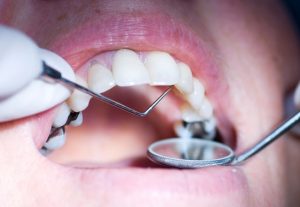Environmental watchdog group, BAN Toxics, has called the attention of regulators to enforce the phase-out deadline on the use of mercury in dental restorative procedures with the three-year transitory period (ending in May 2023) in the Philippines.

This effectively bans the use of mercury in dental restorative procedures and its use in clinics and schools. This follows an earlier ban on the import of liquid mercury for use in dental amalgam and its use in children fourteen years old and below, pregnant women, and nursing mothers.
“As we reach the three-year phase-out period of dental amalgam in connection with the implementation of the AO 2020-0020, we will continue to be vigilant – the use of dental amalgam for dental restorative procedures in dental clinics and schools should no longer be allowed, and the exclusion of dental amalgam and its capsules as well as liquid mercury from the list of registrable medical devices in the Philippines should be properly observed.
“We applaud the Philippine government for their continued efforts to protect the public from mercury. BAN Toxics’ monitoring reveals that dental amalgam use and availability have dropped significantly since, and we continue to urge distributors and practitioners to comply with the policy and transition to safer alternatives,” says Jam Lorenzo from the organisation’s Policy Development and Research Unit.
Dental amalgam, commonly known as silver fillings, is used to repair decayed or broken teeth. It often contains silver, tin, small amounts of copper and zinc, and mercury. Mercury is cited by the World Health Organisation as one of the top 10 chemicals of major concern due to its adverse impacts to human health and the environment. The chemical is known to negatively impact our nervous, digestive, and immune systems.
To recall, the Department of Health (DOH) issued Administrative Order No. 2020-0020, otherwise known as “Guidelines on the Phase-out of Mercury Use in Dental Restorative Procedures” in 2020. The AO covers the phasing-out on the importation, distribution, manufacture, storage, transport, handling, use (including dental schools and research) and disposal of dental amalgams in the Philippines.
Likewise, the Food and Drug Administration issued FDA Circular 2022-003 which aims to totally ban the manufacture, importation, exportation, distribution, sale, offer for sale, donation, transfer, and where applicable, the use, promotion, advertising, or sponsorship of mercury-added thermometers and sphygmomanometers along with dental amalgam capsules and liquid mercury for use in dental restorative purposes to protect human health from the adverse effects of mercury-added medical devices.
The Philippines ratified the Minamata Convention on Mercury, a legally binding global treaty that seeks to protect human health and the environment from man-made emissions of mercury and mercury compounds. Since then, the country has ramped up its management of mercury in dentistry.
“We aim to educate the public about the dangers of mercury. We will continue to fight for the protection of our consumers from harmful products such as dental amalgam, and we reiterate the importance of complying with our mercury policies in the country for a toxics-free future for our children,” said Lorenzo.
“BAN Toxics continues to commend the DOH and the Department of Environment and Natural Resources (DENR) for their continued efforts in managing mercury. Furthermore, the organization extends its continued support and assistance for the government’s endeavours in sound chemicals management in the country,” the group added.
The group is currently conducting a study to assess the effectiveness of the ban on dental amalgam in clinics and educational institutions. The project is in partnership with the Environmental Management Bureau of the Department of Environment and Natural Resources with funding from the Ministry of Environment – Japan.
